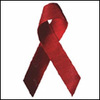 [Speech for the third World AIDS Day vigil in Newcastle, UK, on December 1, 2006. The speech for the 2004 vigil is here, and for the 2005 vigil here.]
[Speech for the third World AIDS Day vigil in Newcastle, UK, on December 1, 2006. The speech for the 2004 vigil is here, and for the 2005 vigil here.]
I’m a member of the Newcastle HIV patient group. One of the things we do fairly often is talk to medical students, most of whom look, to me at least, very young indeed. Before we say anything, though, the students are usually asked to imagine some of the problems that might come up around HIV positive patients. We’re supposed to sit quietly during this part, and sometimes we manage well enough; but usually the students come up with one example after another of all the different ways that we might accidentally infect someone else, the ways that we can cause different kinds of trouble for other people. Now that is all very important of course, and we all care a great deal about it – but sometimes, after they’ve gone on and on like this for half an hour or so, I get a little impatient, and I can’t help feeling, as they’d say in New York: so what am I then, chopped liver?
I know what they’re thinking – at least, what they’re thinking before one of us speaks up, before we start to tell our stories, before they start to register that the patients in the room are real people, with feelings, and pasts, and maybe even futures. For them, at first anyway, we’re already past any kind of hope – their first impulse is to sort of ring-fence us, to make sure that the problems we represent don’t get any bigger. This is a version of what we call That Us-And-Them Thing – you know what I mean: when you know who belongs to your tribe, your family – or your country, your type of person – and, even more importantly, who doesn’t: because it’s not just a matter of who you care about, it’s also about deciding who is simply off your radar, or even who you see as a threat.
It’s a natural thing, and something we all do: you can’t care about everybody in the world, you can’t make everyone’s problems your own. So you draw lines – some of them obvious: you care whether your sister is happy with her new boyfriend, you care whether the friend who’s making you a cup of tea is looking worn out, you might even care whether the guy who works at the corner store seems cheerful today. But you don’t care as much, and maybe you can’t afford to care, whether a woman on the Metro looks upset, or whether somebody’s dying of starvation in another time zone.
Of course, AIDS has its own huge history of Us Versus Them, going all the way back to the beginning – when they first called it GRID, Gay-Related Immune Disorder, the best thing about that name was the reassurance that it wasn’t a problem for anybody who wasn’t a gay man. Then, and for a long time, all those who weren’t gay men were The General Population – and that phrase haunted us for years: the government worried that the virus would get out of the gay ghettos into the General Population, which meant you and your mom and your cousin Fred; if it ever did that we’d be in real trouble. Later it was all about the Three Hs – Haitians, homosexuals, and hemophiliacs – and that was strange. A joke from that time, from the mid-1980s, went something like: What’s the really hard part about getting AIDS? The answer: getting your wife to believe that you’re Haitian.
In this country, of course, one of the smart decisions for guys who were gay was: don’t sleep with Americans. In America, it was more specific: don’t sleep with anybody from New York or San Francisco. Over the years, this all kept changing shape – for straight men, don’t sleep with anybody from Africa; for women, check the guy in the bar to see if he has needle marks in his arm. For governments, there would be decisions on a larger scale – let’s not have any immigrants from, say, South Africa, or Indonesia. As you all probably know, a lot of our friends from Africa were sent back by the British government last year, around election time – because they were somebody else’s problem, because they might cost money, maybe even because they were some kind of a threat.
Here in Newcastle, a young man who had come from Malaysia was told that he was going to be sent back home because his health was too good. The fact that it would be difficult for him to get medications at home, that he would probably get seriously ill if he were deported, wasn’t very interesting to the Home Office, because he was clearly one of Them, not one of Us. So he did something kind of foolish: he stopped taking his medications so that he would get a little sick, so that they would let him stay for a while longer. Sadly, he stopped them for too long, and his immune system went to pieces; some of you here probably went to his funeral.
So: what can we do about Us – and what can we do about Them?
Well, the truth is, we’re already doing a lot. We’ve all probably learned it doesn’t do much good to tell people to just stop thinking in certain ways – never quite works, does it? – but what we have seen is that simply letting people know that there are others around them who are HIV-positive, who sit on buses with them, or work with them, or go to pubs with them, makes all the difference in the world.
Once you’ve told someone that you’re positive – or, if you feel like being a little bit dramatic, you can tell them that you have AIDS – you can just stand there talking to them about anything: the weather, the traffic, what you had for lunch. You don’t have to tell them how to think, how to feel: but you can almost sense this little dial in their head gradually clicking over from ‘Strange, Scary, Infectious Thing’ to ‘This Guy I’m Talking To.’ And those who aren’t positive have the same effect every time they tell a friend, Oh yeah, my friend who has AIDS said the other day….
You might get a raised eyebrow, or a few questions; but as you talk, you can almost see them getting accustomed to a world that’s suddenly become a slightly different shape – a world where one of the members of ‘Us’ now includes somebody who just happens to have AIDS.






